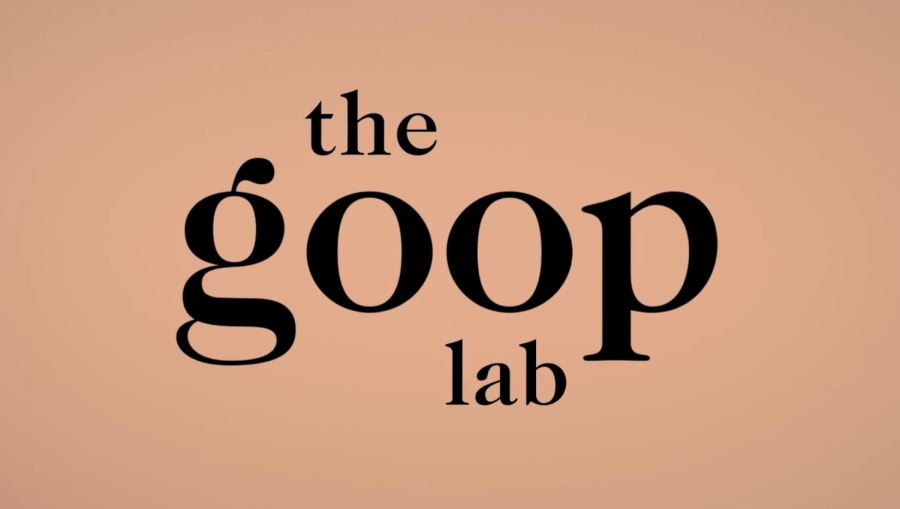Beware of celebrity pseudoscience
Photo Wikimedia Commons
The Goop Lab logo
With the recent release of Netflix’s The Goop Lab—a docuseries highlighting Gwyneth Paltrow’s lifestyle brand Goop—the perveyance of pseudoscience within the modern “wellness” community, especially at the hands of celebrities, is once again making headlines. The docuseries features episodes where the Goop staff travels to Jamaica to take magic mushrooms as a form of therapy and to talk to psychics to cope with tragedy, among other things. It has also helped highlight the sheer power of the completely unregulated wellness industry and just how dangerous it can become when celebrity brands like Goop devote themselves to peddling nonsense.
The alternative medicine industry operates on the basic principle that their more natural and organic forms of healing various ailments are vastly more effective and healthier than FDA-endorsed medicine. This concept has had an incredibly damaging effect on many Americans’ perceptions of healthy lifestyles; a 2014 NPR survey found 37 percent of Americans believe that the FDA is deliberately preventing the public from getting natural cures for cancer and other diseases. This is patently false, yet brands like Goop, which market themselves as safer alternatives, benefit off of this spread of disinformation by seeming like an increasingly trustworthy alternative, despite the fact that some of the health claims on their site are quite obscure.
Under the “Goop PhD” tab on Goop’s official website, there is a compilation of treatment suggestions for various ailments. They preface the section by stating, “[Our researchers] consider and scrutinize the published literature and the work of experts to share the most pertinent research and tools.” However, when one takes the time to actually examine some of the claims these researchers are making, the claims become increasingly difficult to believe.
For example, under the tab for suggested treatments for Anorexia Nervosa, they claim that someone who is suffering from this disorder can find their condition vastly improved by using “cultivating self compassion” (essentially just thinking better about yourself) and Ayahuasca, a psychedelic drug.
Under the “Multiple Sclerosis” tab, Goop claims that Resveratrol, a chemical found on the skins of blueberries, can decrease the nerve damage caused by Multiple Sclerosis. They then clarify at the bottom of a very long paragraph that this claim is based on evidence from a 2017 study that only involved mice.
Under the “Generalized Anxiety Disorder (GAD)” tab, they endorse both MDMA (Ecstasy or Molly) and Virtual Reality technology as potential treatments for Anxiety. They summarize by stating, “While more research is needed on MDMA for GAD in particular as well as use in general, psychedelics is an exciting field that has reemerged in recent years.”
Perhaps most distressingly, Goop advertises Hyperbaric Chambers — not FDA approved — that can apparently help with autism, HIV and AIDS, Cerebral Palsy, hepatitis, depression, and strokes. However, according to a study done by the National Library of Medicine, with this therapy, there was no effect on children with autism, and some children even reported minor ear trauma.
What is imperative to understand about how Goop is allowed to make these claims is that they never cite these as accepted medical practices, but merely as “suggestions” or “exciting new research.” However, this assertion is somewhat undercut by the several paragraphs they dedicate to listing their researchers’ acclaim within their fields and the fact that the section itself is called “Goop PhD.” When you examine all of this, it becomes clear that the average reader could easily construe the treatments they are promoting as accepted medical practices.
This trend of influential brands like Goop promoting sketchy and unregulated treatments for serious diseases and disorders is incredibly dangerous, especially when supported by famous faces like Gwyneth Paltrow. If someone is suffering from, or has a loved one suffering from, one of these illnesses and turns to celebrity-endorsed products in a moment of desperation, they can end up spending an incredible amount of money on non-FDA approved treatments that will most likely end up being complete garbage.
Promotion of sketchy science is not exclusive to Goop. Other companies such as Teami, which sells skinny teas for weight-loss and detoxing and has been supported by the likes of Demi Lovato and Kylie Jenner, have found themselves facing lawsuits for unsubstantiated claims about their products. Teami claimed its tea could cure cancer, reduce migraines, treat the common cold and the flu and clear clogged arteries. All of which were not supported by any scientific evidence.
It is clear that the celebrity-backed wellness industry has grown to enormous heights. At one point, Teami was reportedly offering $1 million to Instagram influencers to post pictures with their products. The main idea here is this: any time you see someone such as Kylie Jenner, Cardi B and yes, Gwyneth Paltrow, promoting “wellness” products, make sure that they are FDA approved. Because, if not, you may have no idea what you are truly being encouraged to buy.

